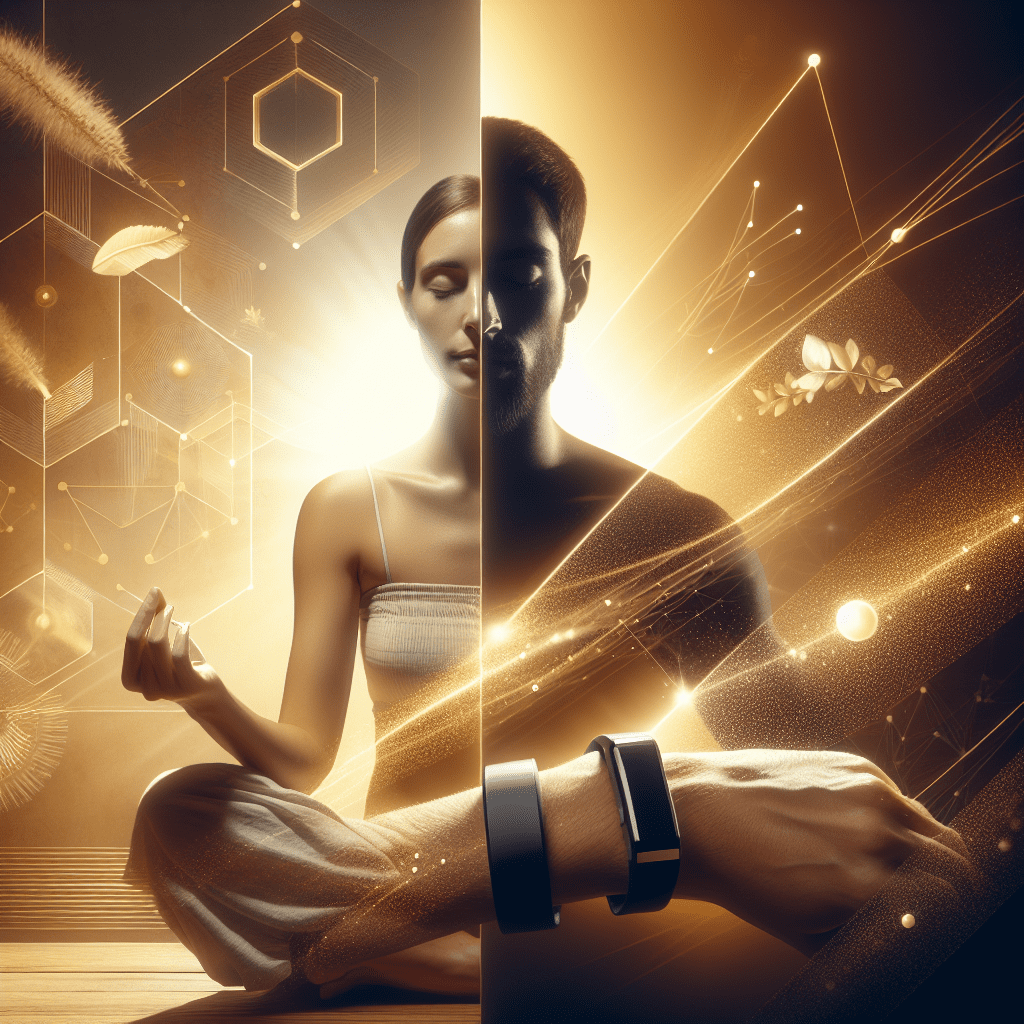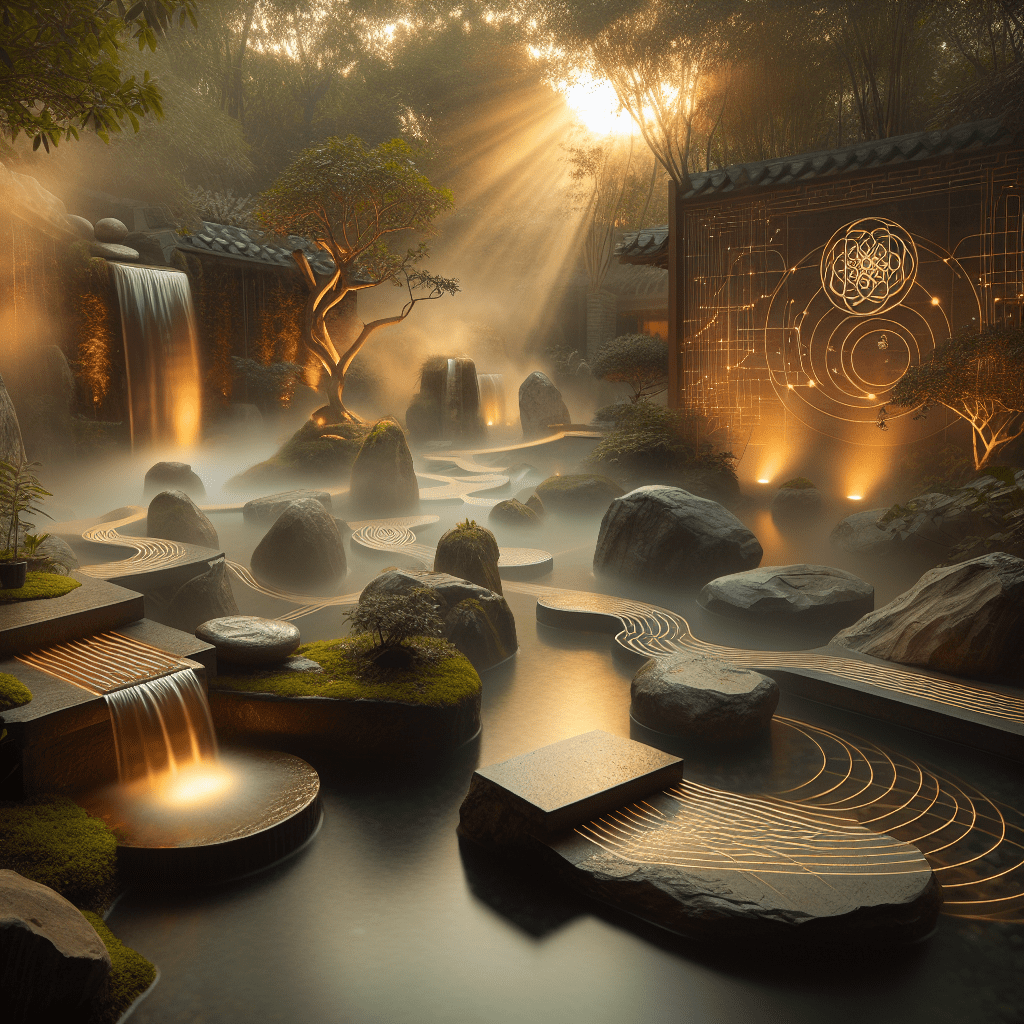You’re not alone in this struggle. Countless individuals seeking holistic wellness find themselves caught in this whirlwind of modern life. The constant juggling of career demands, family responsibilities, and personal well-being can leave even the most organized person feeling like they’re drowning in a sea of commitments.
“Most people come to me feeling like they’ve lost their center,” says Maya Chen, a holistic life coach with over 15 years of experience. “They describe it as a persistent fog of confusion, paired with the weight of being overwhelmed by life’s demands. It’s like they’re living on autopilot, disconnected from their true selves.”
This disconnection is precisely what holistic wellness approaches aim to address. Rather than treating symptoms in isolation, holistic perspectives recognize that our physical, mental, emotional, and spiritual aspects are deeply intertwined. When one area suffers, the entire system falls out of balance.
## The Guiding Light: How Holistic Life Coaches Use Eastern Wisdom
A holistic life coach serves as a guide on your journey toward balance and fulfillment. Unlike conventional coaching that might focus solely on achievement or productivity, holistic life coaching embraces the whole person—mind, body, and spirit. This comprehensive approach draws heavily from ancient Eastern wisdom traditions that have stood the test of time for thousands of years.
“Eastern philosophies offer us profound frameworks for understanding balance,” explains Dr. James Wong, who integrates Eastern practices into his holistic life coaching. “While Western approaches often emphasize doing and achieving, Eastern wisdom teaches us about being and harmonizing. It’s about finding your place within the natural order rather than forcing your way through life.“
This integration of mind, body, and spirit forms the cornerstone of holistic life coaching. Rather than compartmentalizing your life into separate boxes—career in one, relationships in another, health in a third—a holistic life coach helps you see how these elements flow together in a beautiful, interconnected dance.
A holistic life coach trained in Eastern traditions might begin by assessing your energy balance, identifying areas where you’re depleted or blocked, and creating personalized practices to restore harmony. This could involve dietary adjustments based on your constitutional type, movement practices that suit your energy pattern, or meditation techniques tailored to your specific mental-emotional challenges.
## Eastern Philosophies: Ancient Wisdom for Modern Balance
The treasure trove of Eastern philosophical traditions offers rich resources for today’s holistic life coaches. Three particularly influential systems—Buddhism, Taoism, and Ayurveda—provide complementary perspectives on achieving harmony and balance.
Buddhism teaches us about the nature of mind and suffering. Through practices like mindfulness meditation, we learn to observe our thoughts without attachment, creating space between stimulus and response. This space is where our freedom lies—freedom from reactive patterns that keep us stuck in cycles of stress and overwhelm.
“When clients learn to pause and observe their thoughts through Buddhist-inspired mindfulness practices,” shares holistic life coach Sarah Kim, “they often experience a profound shift. They realize they don’t have to believe every thought that crosses their mind or react to every emotion that arises. This simple recognition creates tremendous freedom.“
Taoism, with its principle of “wu-wei” (non-forcing action), teaches us to align with the natural flow of life rather than struggling against it. The famous Taoist concept of yin and yang reminds us that opposite forces are complementary and interdependent. A holistic life coach might help you identify when you’re overemphasizing one aspect of life at the expense of another, creating imbalance.
“In my coaching practice, I often see clients who are all ‘yang‘ energy—constantly doing, pushing, achieving—without balancing it with ‘yin‘ qualities of receptivity, rest, and reflection,” notes holistic life coach Michael Chen. “This imbalance inevitably leads to burnout and health problems. Taoist wisdom helps us restore harmony between these complementary energies.“
Ayurveda, India’s ancient “science of life,” offers a sophisticated system for understanding individual differences in constitution and providing personalized lifestyle recommendations. An Ayurveda-informed holistic life coach might help you identify your dominant dosha (constitutional type) and create daily routines that support your unique mind-body balance.
These ancient philosophies share a common recognition: true wellness emerges from harmony and balance rather than from force or control. In today’s coaching practices, these timeless principles are finding new expression, helping confused and overwhelmed individuals rediscover their center.
## Practical Techniques: Eastern Wisdom in Action
The beauty of working with a holistic life coach versed in Eastern traditions lies in the practical, applicable techniques they can share. These aren’t abstract philosophies but lived practices that have transformed countless lives across millennia.
Meditation stands as perhaps the most recognized Eastern practice adopted in Western contexts. A holistic life coach might introduce you to various meditation techniques, from focused attention practices to open awareness approaches, helping you find the style that resonates with your particular mind type.
“I was skeptical about meditation at first,” admits Jordan, a former client of holistic life coaching. “My mind was so chaotic I couldn’t imagine sitting still. But my coach introduced me to walking meditation first, then gradually helped me build to seated practice. After three months, my anxiety levels dropped dramatically, and I found myself responding to stressful situations with much more clarity.“
Yoga, another Eastern practice gaining worldwide recognition, offers a movement-based approach to integration. Unlike typical Western exercise that may focus primarily on physical appearance or performance, yoga aims to harmonize body, breath, and awareness. A holistic life coach might recommend specific yoga postures or sequences to address your particular imbalances.
Tai Chi and Qigong, flowing movement practices from the Chinese tradition, work directly with energy cultivation and circulation. These gentle yet powerful exercises can help restore vitality when you’re depleted and calm excess energy when you’re agitated.
“After practicing Qigong daily for just two weeks, I noticed a remarkable difference in my energy levels,” shares Melissa, who worked with a holistic life coach after experiencing burnout. “I no longer crashed in the afternoon, and my sleep improved dramatically. It felt like my body was remembering its natural rhythms.”
Eastern dietary wisdom also plays a significant role in many holistic coaching approaches. Rather than following one-size-fits-all diet plans, Eastern nutritional philosophy emphasizes eating according to your constitutional type, the current season, and your specific imbalances. Food is understood as medicine, with each ingredient carrying specific energetic properties that can either support or undermine your balance.
These practical techniques offer more than symptom management—they facilitate profound personal growth. When we engage in practices that bring us back to center, we develop greater self-awareness, emotional regulation, and resilience. We begin to recognize our reactive patterns and create new, more conscious responses to life’s challenges.
## Personal Empowerment Through Eastern Holistic Coaching
At its heart, holistic life coaching grounded in Eastern wisdom is about empowerment. Rather than creating dependency on a coach or guru, these approaches aim to help you develop your own inner compass—your ability to recognize imbalance and take appropriate steps to restore harmony.
“Eastern traditions have always emphasized the student’s journey toward self-mastery,” explains Dr. Lisa Fang, who integrates Eastern wisdom into her holistic life coaching practice. “The goal isn’t to become permanently dependent on outside guidance but to cultivate your own wisdom and discernment.”
This empowerment happens through various channels. First, Eastern practices help you develop greater body awareness—the ability to notice subtle sensations that signal either harmony or imbalance. By tuning into these physical cues, you gain valuable information about what supports your well-being and what depletes it.
Second, Eastern-inspired mindfulness practices enhance your ability to observe your mental and emotional patterns without being consumed by them. This metacognitive skill—the capacity to witness your own thought processes—creates freedom from habitual reactions.
Third, Eastern philosophical frameworks provide conceptual maps that help you make sense of your experience. Concepts like yin and yang, the five elements, or the three doshas offer language and structure for understanding the rhythms and patterns of your life.
Armed with these tools, you become increasingly capable of navigating life’s complexities with wisdom and grace. Rather than being tossed about by external circumstances or internal reactions, you develop the ability to respond consciously, choosing actions that restore and maintain balance.
## Modern Technology Meets Ancient Wisdom: The HerbalsZen Approach
In our rapidly evolving world, innovative platforms are finding ways to make Eastern wisdom more accessible and personalized than ever before. HerbalsZen exemplifies this integration through its groundbreaking EASTCHI AI system, which bridges the gap between ancient healing traditions and cutting-edge technology.
EASTCHI AI represents a remarkable synergy—the marriage of 2,000-year-old Eastern medical knowledge with sophisticated artificial intelligence. This system analyzes your constitutional type through the lens of Five Element Theory, a fundamental framework in Traditional Chinese Medicine that helps identify patterns of imbalance and strategies for restoration.
“What makes approaches like EASTCHI AI so valuable is their ability to offer highly personalized guidance,” notes wellness expert Dr. Jonathan Lee. “Eastern medicine has always emphasized that there’s no one-size-fits-all approach to balance. Your path to harmony depends on your unique constitution, current imbalances, and life circumstances.”
Through systems like EASTCHI AI’s constitution assessment, individuals gain deep insight into their unique body type and current imbalances. This isn’t just another generic health quiz—it’s a sophisticated analysis grounded in millennia of Eastern medical observation and practice.
The system also provides seasonal dietary guidance, embracing the Eastern understanding that our bodies’ needs shift with natural cycles. What supports balance in winter may create imbalance in summer. This nuanced approach to timing is a hallmark of Eastern wisdom that’s often overlooked in Western health paradigms.
For those feeling confused and overwhelmed by contradictory health advice, platforms that integrate ancient Eastern wisdom with modern technology offer a refreshing alternative—personalized recommendations rooted in time-tested principles rather than fleeting trends.
## Embracing the Journey to Balance
The path from confusion and overwhelm to clarity and balance isn’t typically a straight line. It’s a journey—sometimes meandering, occasionally challenging, but ultimately rewarding. Working with a holistic life coach who draws from Eastern wisdom traditions can provide both the map and the companionship needed for this transformative passage.
“The most beautiful part of this work,” reflects holistic life coach Emma Wong, “is witnessing people reconnect with their innate wisdom. When they begin to trust their body’s signals, honor their need for rest, and move in alignment with their true nature, life takes on a different quality. There’s a sense of flow and ease that replaces the constant struggle.“
This journey toward balance isn’t about achieving some perfect, static state. Eastern philosophies teach us that life is constantly changing, and true harmony comes from our ability to adapt and flow with these changes rather than resist them. A holistic life coach helps you develop this adaptability, this capacity to dance with life’s ever-shifting currents.
If you find yourself caught in confusion and overwhelm, know that ancient wisdom combined with modern coaching approaches offers a promising path forward. The integration of mind, body, and spirit through Eastern-inspired practices can guide you back to your center, where clarity replaces confusion and calm replaces overwhelm.
Consider exploring holistic life coaching grounded in Eastern wisdom, or investigate innovative platforms like HerbalsZen’s EASTCHI AI that make these ancient insights accessible in contemporary formats. The journey to balance begins with a single step—the decision to prioritize harmony in your life and explore approaches that address your whole being, not just isolated symptoms.
In a world that often pulls us in countless directions, the time-tested wisdom of Eastern traditions reminds us of a simple truth: balance isn’t something we achieve once and for all, but a dynamic state we continually cultivate through conscious awareness and aligned action. With the right guidance and practices, you can transform confusion into clarity and overwhelm into serene empowerment.


